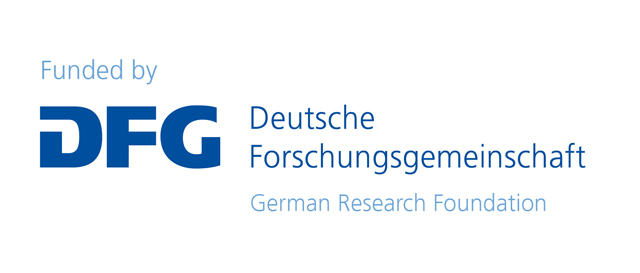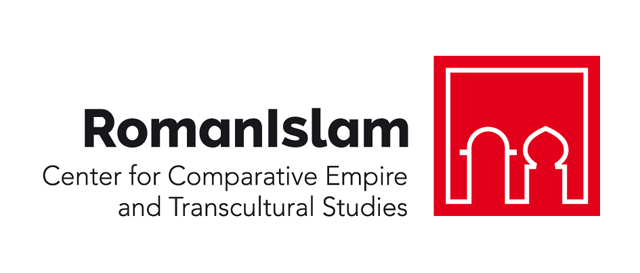Lecture Series RomanIslam
Academic Year 2025-26
Nomads and Nomad Polities
“Nomads and Nomad Polities”
Whoever studies North Africa is puzzled by the presence of the Roman and Islamic Empires and the seemingly amorphous polities beyond them; meaning the regions of what is now Algeria and Morocco. Seemingly, only a few were organized by the Empires. Most of them formed their own polities. They developed distinct structures, as well as political and religious outlooks. These polities, as far as we can identify them, were formed by nomadic and semi-sedentary groups, which were called collectively ‘Berber’ in the Islamic period. Their history is mostly known from the perspective of the narrative (Arabic) sources of the Empires. Different forms first of Romanization and Christianization, afterwards of Islamication and Islamization during this state building processes took place, uncontrolled by the Empires.
In the wake of urbanization, particularly in western Maghrib, outside Africa Proconsularis and Ifrīqiya, the local nomadic groups also created urban centers. This is, especially, evident in the case of the Islamic period.
The two lectures of our general topic “Nomads and Nomad Polities” follow up questions raised by these polities, their adaptions and responses to imperial forms.
We cordially invite you to our guest lecture “Nomads and Nomad Polities" on Wed. Jan. 21, 2026, 5 -7 pm (German time) on Zoom. For registration please contact romanislam"AT"uni-hamburg.de by Jan. 18, 2025.
The format comprises the lectures "Nomads, Empires and the (Non-)Formation of Nomadic „States“ in Roman and Byzantine North Africa (1st to 6th c.)" by Dr. Daniel Syrbe (Fernuniversi'tät Hagen) and "Des Maures aux Berbères: représentations textuelles et processus d'intégration à l'Islam d'Occident (VIIe-Xe siècle)" by Prof. Dr. Allaoua Amara (l’Université Émir Abdelkader de Constantine, Algeria)
[ more ]
Religions and Empires II
Religion and Empires II
How Can Imperial Cohesion be Created?
The early Roman Empire was not conceived as an empire of a salvation faith with an outlook of a Day of Judgment and the promise of an afterlife. Romanization began centuries before the rise of Christianity. It was not until the fourth century that Christianity, a non-ethnically bound salvation religion, strengthened the weakened structures of the Roman Empire by providing a new, religiously inspired cohesion. Those ancient religions were nevertheless crucial to the initial Romanization process. These religions manifested themselves in public and private rituals, providing worshipping communities with cohesion under the watchful eyes of the divine. However, those rituals were bound to places of worship and were therefore mostly city-based. Although gods and rituals proliferated through the migration of armies, playing a role in the Romanization of conquered Mediterranean lands and beyond, they did not provide the empire with a unified identity. There were a few attempts by emperors to influence and converge these ritual systems for the political needs of the empire.
The Islamic Empire experienced a simultaneous conquest and spread of a religion of salvation. Islam quickly lost its main ethnic boundaries through conversion, clients, and slavery. Despite being anchored in the rituals and places of worship of the Prophet in Mecca and Medina, Islam transcended those locations. As a religion of salvation, Islam found fertile ground prepared by Christianity in the Mediterranean and Zoroastrianism in the Iranian world. From its inception, Islam served as the primary means of imperial cohesion and culture for an Arab and then multi-ethnic elite. It was the driving force of cultural acculturation or Islamication, a term parallel to Romanization. However, the relationship between religion and Islam was not that simple.
This back-to-back lecture is a continuation of our January 15, 2025, debate about religion and empire.
We cordially invite you to our guest lecture “Religions and Empires II" on Wed. July 9, 2025, 5 -7 pm (German time) on Zoom. For registration please contact romanislam"AT"uni-hamburg.de by July 5, 2025.
The format comprises the lectures "Empire, Cities and Rituals: The Limits of Control in the Roman Period" by Prof. Dr. Greg Woolf (ISAW N.Y.U) and "Empire through Religion? Religion through Empire?" by Prof. Dr. Lutz Berger (University of Kiel)
[ more ]
Carthography and Empire - The World on View
Carthography and Empire - The World on View
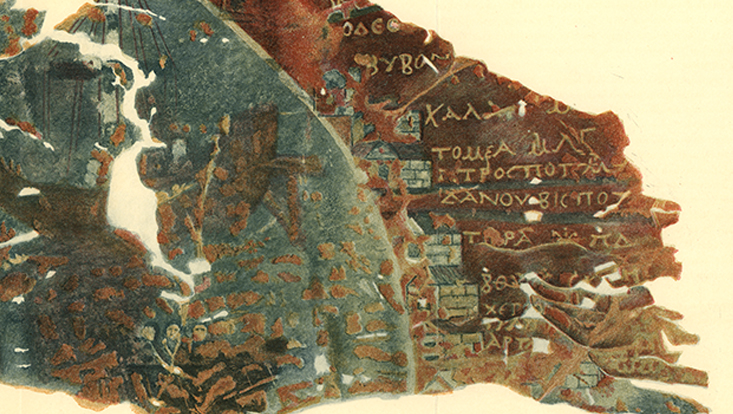
The Roman Empire and the Islamic Empire conquered and ruled large areas of land. What did emperors, caliphs, and governors know about the lands they actually ruled? What cities and tax-rich regions, what mountains, valleys, river systems did they have to oversee? Where were they located? While land surveying for purposes of land distribution, cultivation, and taxation was well developed, and astronomical observation and mathematics were at such a high level that they could measure the spherical shape of the planet, knowledge of the geological and civilizational features of the earth was still in its infancy, but necessary. Maps, however, seem to have a different origin than fiscal or astronomical concerns. Itineraries and road maps were not only verbalized, but put on a graphic. The best known map of late Roman antiquity was the map copied around 1200 CE and kept for a long time in the family of the humanist Konrad Peutinger. In the Islamic Empire, cartography had similar roots, beginning with itinaries and their visualization, and in some cases linked to astronomical measurements. In our back-to-back lecture the outstanding speakers offer a discourse between the efforts of the two empires.
We cordially invite you to our guest lecture “Carthography and Empire - The World on View" on Wed. May 21, 2025, 5 -7 pm (German time) on Zoom.
The format comprises the lectures "Roman Cartography and the Empire" by Prof. em. Dr. Richard Talbert (The University of North Carolina at Chapel Hill) and "The Islamicate World in Pieces. Envisioning the Abbasid Realm through the Book of Routes and Realms (10th c.)" by Dr. Nadja Danileko (Freie Universität Berlin).
For registration please contact romanislam"AT"uni-hamburg.de by May 17, 2025.
[ more ]
Academic Year 2024-25
Religions and Empires
Empire and Religion – Who Drives Whom?
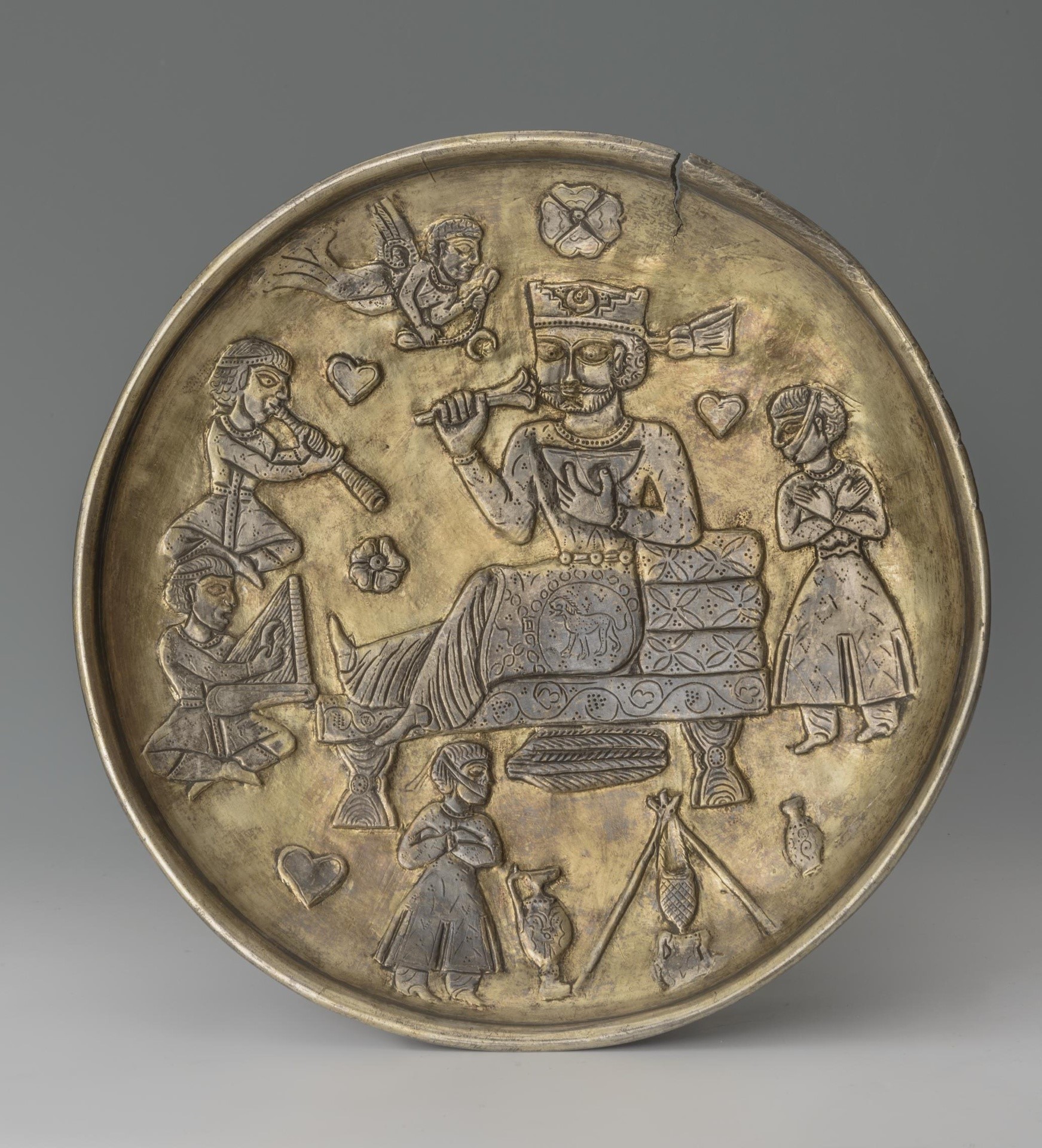
The relation between Empire and Religion is not a natural partnership. Alexander the Great and Caesar had no interests in proliferating their home pantheon. The movement of Gods across their empires was on the one hand a result of cross-identification of local deities, and on the other hand a result of the movement of people and their culture. Both impacts were important in the Hellenization and early Romanization process.
The empires of prophetic or messianic salvation religions are different; these are Christian Rome, to a certain extent Mazdaic Sasanian Iran, and the Islamic Empire. These religions have a theology and the promise of salvation, far beyond the well being of an urban cult-community.
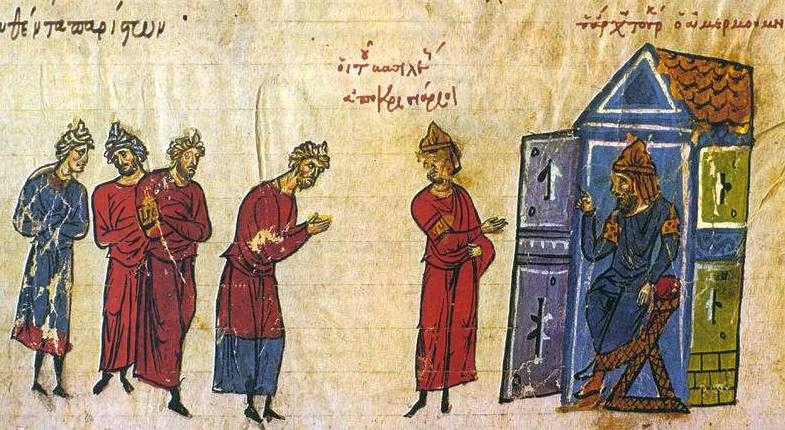
The religions came with a network, and different forms of organization of the community which invigorated an old empire in crisis (Rome) or came along with its expansion (Islam). The Sasanian Empire might be in the middle, since it took over the older Parthian one.
Not only the organizational force of a salvation religion makes it attractive for any imperial polity, adopting it or founded with it, but also its power to bestow legitimacy to the imperial state and its rulers, be it Augusti, Shahanshahs, or the caliphs. Vice versa, the organized religion gains support in its power over the minds of people.
The two lectures explore the movements of the messianic and salvatic promise of religion in the political world of late Antiquity in their Roman, Sasanian and early Islamic dimension.
We cordially invite you to our guest lecture “Religions and Empires" on Wed. Jan. 15, 2025, 5 -7 pm (German time) on Zoom. For registration please contact romanislam@uni-hamburg.de by Jan. 12, 2024.
The format comprises the lectures "Mazdean Dreams of Revived Empire" by Prof. em. Dr. Garth Fowden (University of Cambridge) and "Inter-Imperial Rivalry and the End of Time: Byzantine, Spanish Umayyad, and Abbasid Relations in the Ninth Century" by Prof. Dr. Hayrettin Yücesoy (Washington University in St. Louis)
[ more ]
Changing Agricultural Landscapes Nov. 13, 2024
Changing Agricultural Landscapes: Transforming Agricultural Landscapes - From Hispania to al-Andalus
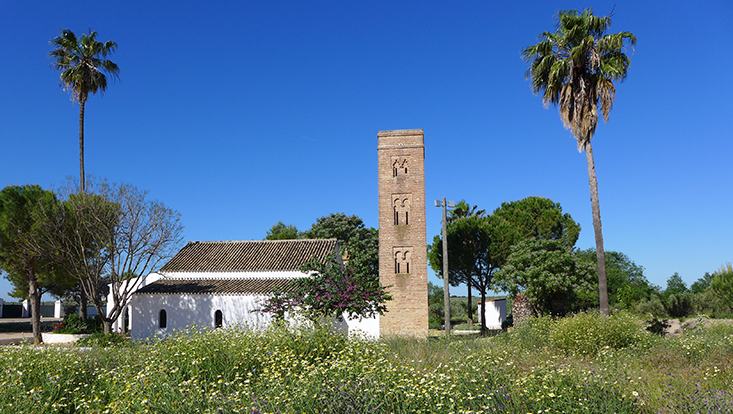
Often overlooked, but literally ‘ground-braking’ is agriculture. The way a society shapes its landscape mirrors the society at large. Of course, this is not easily to discern for a pastoral passer-by?
Why is landscaping agriculture important for historians? Why to listen to this back-to-back lecture? There are several reasons, because agricultural landscaping is the result of:
- Property Rights: Pre-modern society generate their wealth up to 90% by farming and husbandry. Law is at work, and the distribution of wealth becomes visible in the ‘fields’ and, as we will see, in forms of agricultural settlements.
- Farming Techniques: Water supply and irrigation are fundamental for the success of the countrymen. Water distribution touches law, engineering techniques, and of course economic investments in them.
- Size and the Produce: The visible use of the land distinguishes industrial agriculture versus small farms, provide information about the labor force, free farmers, employed landless population, or slaves.
- Dietary. The produce mirrors the dietary preferences and thus demand of the society, grain or fruits, fields or garden, ox and pigs or sheep.
The Roman world had its distinguished feature to produce on an ‘industrial’ scale. The Monte Testaccio in Rome, with its disposed oil-amphorae, is a visible monument of this.
With the Visigoths, a new landholding class came to Hispania which was then severed from much of the Cross-Mediterranean trade. After the Muslim Conquest, a complete new population, with different backgrounds in agriculture and husbandry came to the region, settling and producing villages. How did the change in ownership, law, irrigation techniques and dietary preferences alter the landscape and the habitats? Archaeology of landscapes and rural sites is a way to answer.
We cordially invite you to our guest lecture “Changing Agricultural Landscapes" on Wed. Nov. 13, 2024, 5 -7 pm (German time) on Zoom. For registration please contact romanislam"AT"uni-hamburg.de by Nov. 10, 2024.
The format comprises the lecture "Roman Agriculture and Landscape in Hispania: An Archaeobotanical Perspective from its Western Fringe" by Dr. Joao Tereso (UNIARQ - Centro de Arqueologia da Universidade de Lisboa) and "Cuatrovitas (Bollullos de la Mitación, Prov. of Seville, Spain) - New Investigations into the Almohad Mosque and Abandoned Village" by Dr. Heike Schneider (Universität Jena) & Dr. Anja Heidenreich (Universität Bamberg).
[ more ]
Slavery in the Iberian Peninsula and Islamic North Africa, June 12, 2024
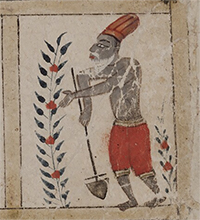
Humans as property are a deeply ingrained feature of human societies since the rise of a monetary economy in the Ancient Orient. Jeffrey Fynn-Paul (2009) highlighted the entanglement between Slavery, Empire and Salvation religions. Empire and Salvation religion protect to a certain extent its free population and co-religionists from slavery. Thus in turn, the interior demand turns toward the empire’s exterior for the supply which then comes from tribes, city states, or small principalities. The different legal framework between the Roman and the Islamic Empires resulted in quite different conditions for the slaves and consequences for the societies.
Where did slaves work? The Roman and Islamic Slavery is often contrasted: the one as agro-industrial and mineral extracting apart from ubiquitous domestic slavery while the other is described as overwhelmingly domestic, and military. But is this simple picture true? How did the institution change after the fall of the Roman Empire, Comparing both forms of slavery and their role in society and economy and a closer on the Iberian Peninsula and North may yield new answers.
We cordially invite you to our guest lecture “Slavery in the Iberian Peninsula and Islamic North Africa" on Wed. June 12, 2024, 5 -7 pm (German time) on Zoom. For registration please contact romanislam@uni-hamburg.de by June 10, 2024.
The format comprises the lectures "The Transition from Roman to Visigothic Slaveholding in the Iberian Peninsula" by Prof. Dr. Noel Lenski (Yale University) and "Continuities in Agricultural Slavery from Roman to Islamic North Africa" by Prof. Dr. Kristina Richardson (University of Virginia)
[ more ]
Music in the Roman and Islamic Empire, April 24, 2024
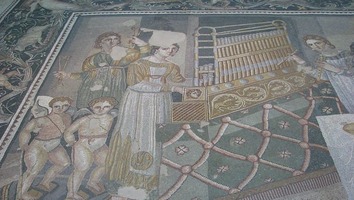 Sound and Music are the most subtle and distinct way a culture and a religion in particular identifies. The communal act of singing and listening to melodies of the extraordinary is something which invites into a community and pulls it together. The Roman culture and Christianity and Islamic culture and Islam have their distinct soundscapes. Nevertheless they are based on the same cultural continuum. Different traditions melt together. Singing and music is preeminent for the Christian identity. In Islam music has often had an ambivalent function (liturgy without music or only in recitation), but instrumental music became a mathematical exercise and practical music was enjoyed at court (female singer –slaves) and at any prestigious event, and most certainly among the populace.
Sound and Music are the most subtle and distinct way a culture and a religion in particular identifies. The communal act of singing and listening to melodies of the extraordinary is something which invites into a community and pulls it together. The Roman culture and Christianity and Islamic culture and Islam have their distinct soundscapes. Nevertheless they are based on the same cultural continuum. Different traditions melt together. Singing and music is preeminent for the Christian identity. In Islam music has often had an ambivalent function (liturgy without music or only in recitation), but instrumental music became a mathematical exercise and practical music was enjoyed at court (female singer –slaves) and at any prestigious event, and most certainly among the populace.
The interdisciplinary guest lecture explores these connections and the use and application of Music in the Roman and Islamic world.
We cordially invite you to “Music in the Roman and Islamic Empire" on Wed. April 24, 2024, 5 -7 pm (German time) on Zoom. For registration please contact romanislam@uni-hamburg.de by April 20, 2024.
The format comprises the lectures "What Happened to Ancient Graeco-Roman Music?“ by Dr. Kamila Wyslucha (Austrian Academy of Science) and "The Functions of Music in Imperial Islam" by Dr. Yasemin Gökpinar (Universität Hamburg).
[ more ]
Academic Year 2023-24
Luxury Ceramics, Jan. 17, 2024
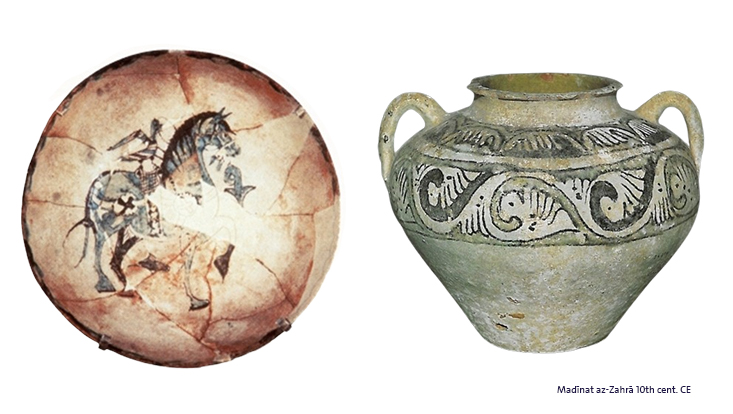 The interdisciplinary guest lecture Luxury Ceramics comprises the lectures "Céramique de prestige au début de la période islamique. Un fossé entre l’Est et l’Ouest“ by Prof. Dr. Susana Gómez Martínez (Universidade de Evora) and "The Islamisation of Material Culture: The Use of Glazed Tableware as Common and Luxury Object" by Dr. Viva Sacco (UCL Institute of Archaeology)
The interdisciplinary guest lecture Luxury Ceramics comprises the lectures "Céramique de prestige au début de la période islamique. Un fossé entre l’Est et l’Ouest“ by Prof. Dr. Susana Gómez Martínez (Universidade de Evora) and "The Islamisation of Material Culture: The Use of Glazed Tableware as Common and Luxury Object" by Dr. Viva Sacco (UCL Institute of Archaeology)
[ more ]
Empowering the Sacred Spaces, December 14, 2023
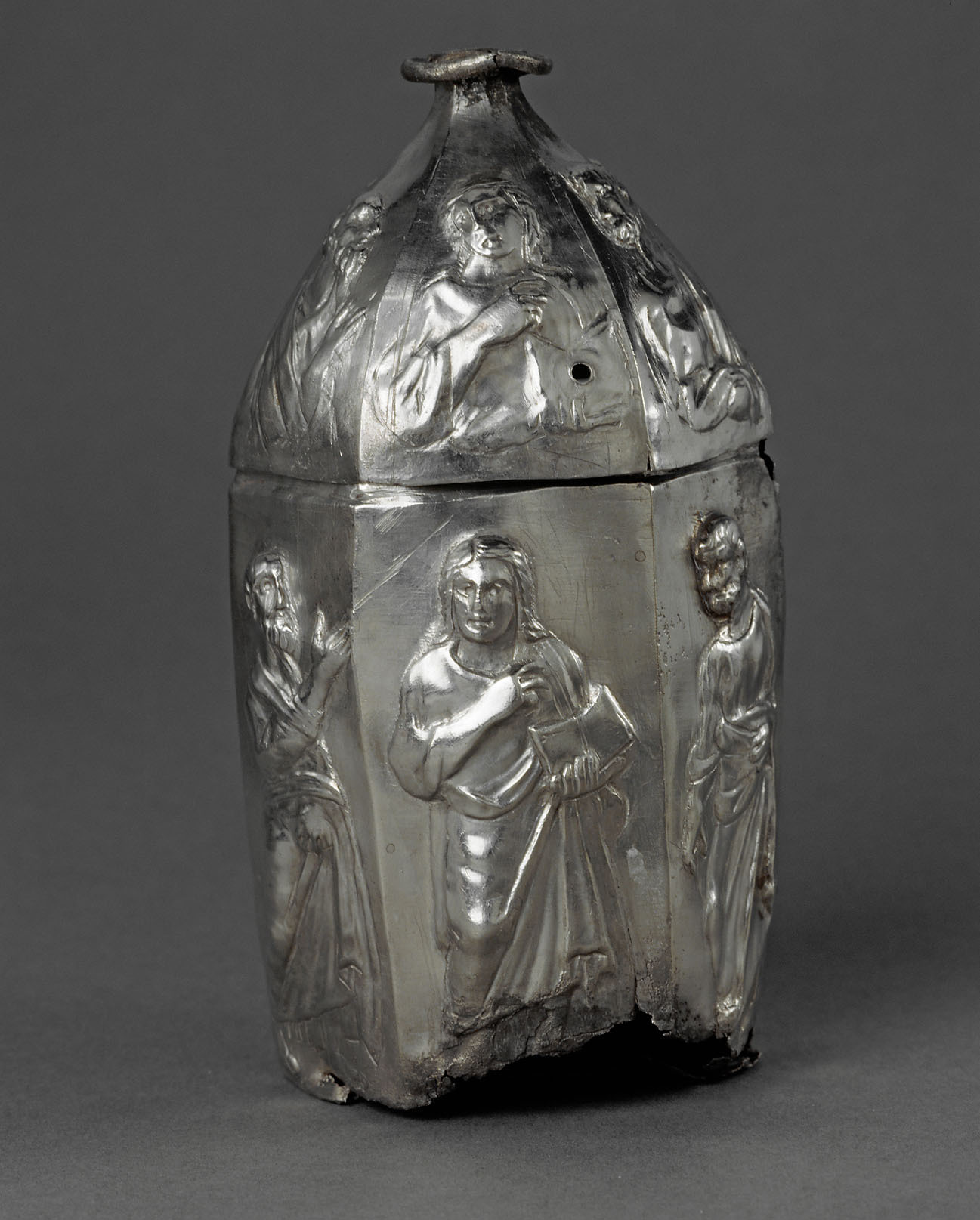 The interdisciplinary guest lecture Empowering the Sacred Spaces comprises the lectures "Subverting Objects, Values, and Ideas: Material Transformations of the Cult of Saint in Late Antique Afro-Eurasia" by Adrien Palladino (Masaryk University in Brno) and "An Ifrīqiyyan Inventio: Gesturing toward North African Sacred Space with a Messenger’s Tomb" by Adam Bursi (Cornell University).
The interdisciplinary guest lecture Empowering the Sacred Spaces comprises the lectures "Subverting Objects, Values, and Ideas: Material Transformations of the Cult of Saint in Late Antique Afro-Eurasia" by Adrien Palladino (Masaryk University in Brno) and "An Ifrīqiyyan Inventio: Gesturing toward North African Sacred Space with a Messenger’s Tomb" by Adam Bursi (Cornell University).
[ more ]
Ivories in Roman and Islamic Contexts, November 15, 2023
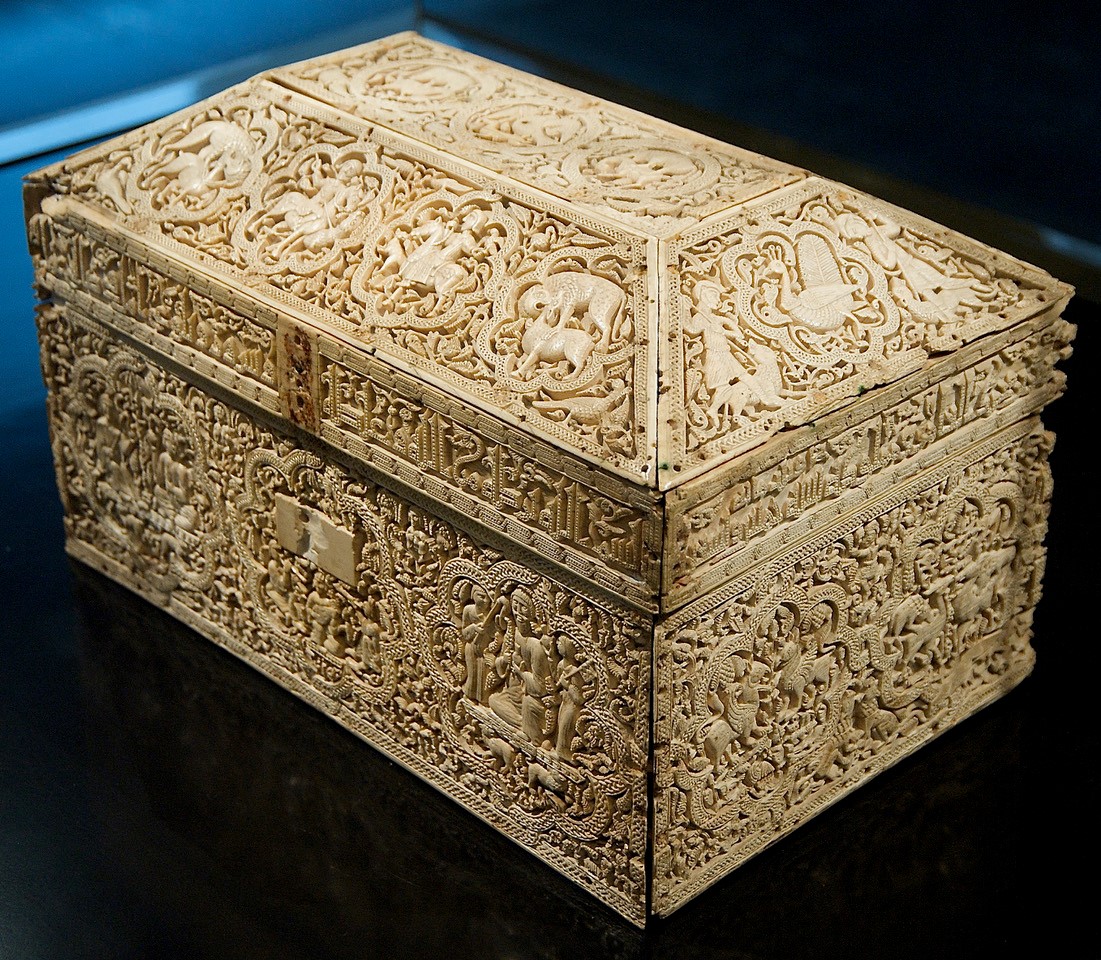
Luxury is often the exotic thing. In the Roman and the Islamic world one of the most precious material was the white slightly honey colored material ivory. This material of prestige had to come from the exterior of our empires: India and sub-Saharan Africa. Source, meaning, and use of the material was different in the Roman and the Islamic Empires.
The interdisciplinary guest lecture Ivories in Roman and Islamic Contexts comprises the lectures "Roman Ivory – A Brief (Trans)Cultural Biography of a Luxurious Material" by Kasper Grønlund Evers (Copenhagen University) and "From Trans-Saharan to Trans-Iberian: Early Islamic Ivory and Ivories" by Rose Walker (The Courtauld Institute of Art, London).
[ more ]
Luxury of Water, October 18, 2023
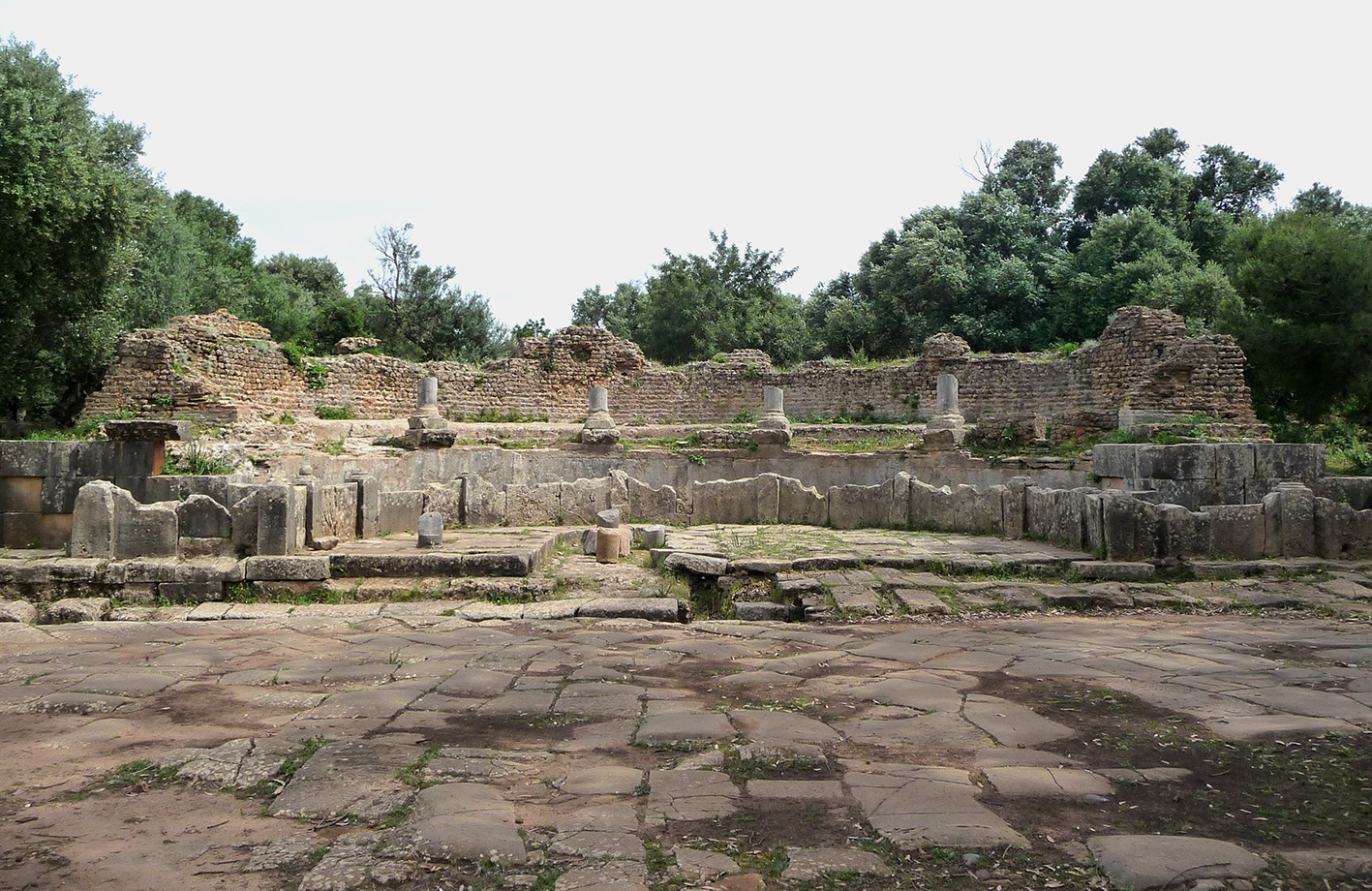 The interdisciplinary guest lecture Luxury of Water comprises the lectures "Still splashing waters: monumental fountains in Late Antique North Africa" by Nicolas Lamare (Université de Picardie) and "Social significance of irrigated agriculture in al-Andalus and Western Mediterranean. Changes in landscapes and productive strategies from Late Antiquity to the Islamic period" by José María Martín Civantos (Universidad de Granada).
The interdisciplinary guest lecture Luxury of Water comprises the lectures "Still splashing waters: monumental fountains in Late Antique North Africa" by Nicolas Lamare (Université de Picardie) and "Social significance of irrigated agriculture in al-Andalus and Western Mediterranean. Changes in landscapes and productive strategies from Late Antiquity to the Islamic period" by José María Martín Civantos (Universidad de Granada).
[ more ]
Gardens of Power, July 13, 2023
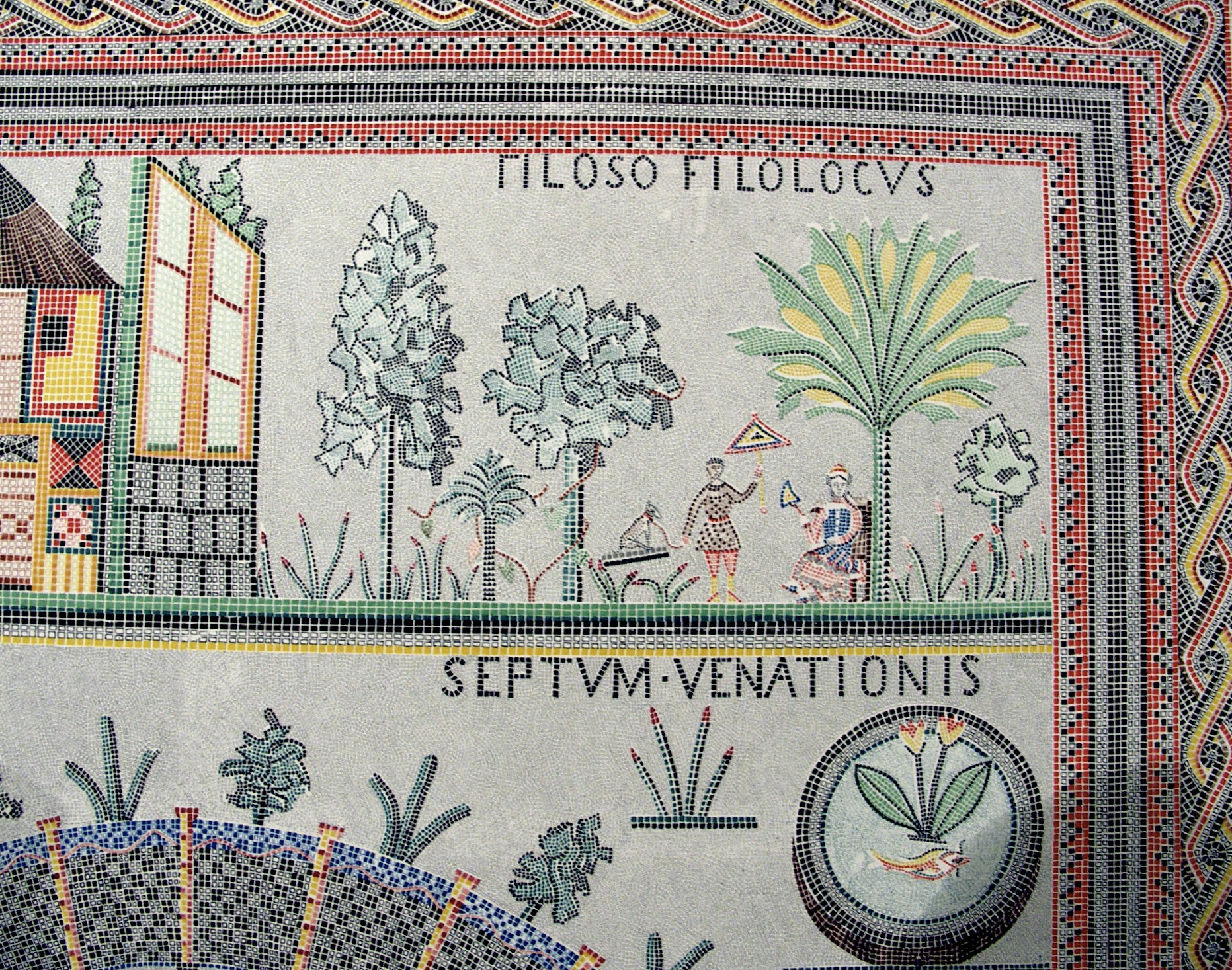 The interdisciplinary guest lecture Inscribing Power in Coinage comprises the lectures "Western Roman gardens in Late Antiquity: between continuity and rupture (4th-5th centuries)" by Eric Morvillez (Avignon Université) and "Living on the Land: the practicalities of agriculture" by Fairchild Ruggles (University of Illinois, Urbana-Champaign).
The interdisciplinary guest lecture Inscribing Power in Coinage comprises the lectures "Western Roman gardens in Late Antiquity: between continuity and rupture (4th-5th centuries)" by Eric Morvillez (Avignon Université) and "Living on the Land: the practicalities of agriculture" by Fairchild Ruggles (University of Illinois, Urbana-Champaign).
[ more ]
Inscribing Power in Coinage, June 7, 2023
The interdisciplinary guest lecture Inscribing Power in Coinage comprises the lectures "The Currency of Power in Post-Roman Hispania: Adaptations of the Imperial Model of Coinage" by Andrew Kurt (Clayton State University) and "A new society, a new coinage?" by Alberto José Canto Garcia (Universidad Autónoma de Madrid).
[ more ]
Possessing Prestige? Religious Attitudes toward Objects, May 3, 2023
The interdisciplinary guest lecture Possessing Prestige? Religious Attitudes toward Objects comprises the lectures "Baptized as a Roman - The Prestige of Roman Culture in Baptismal Art and Architecture from Late Antique North Africa" by Stefanie Lenk (Universität Göttingen) and "Avoiding Luxury, Renouncing the State. Piety and Politics in the 3rd/ 9th Century Islam" by Mateusz Wilk (Uniwersytet Warszawski).
[ more ]
Prestigious Clothing, Apr. 12, 2023
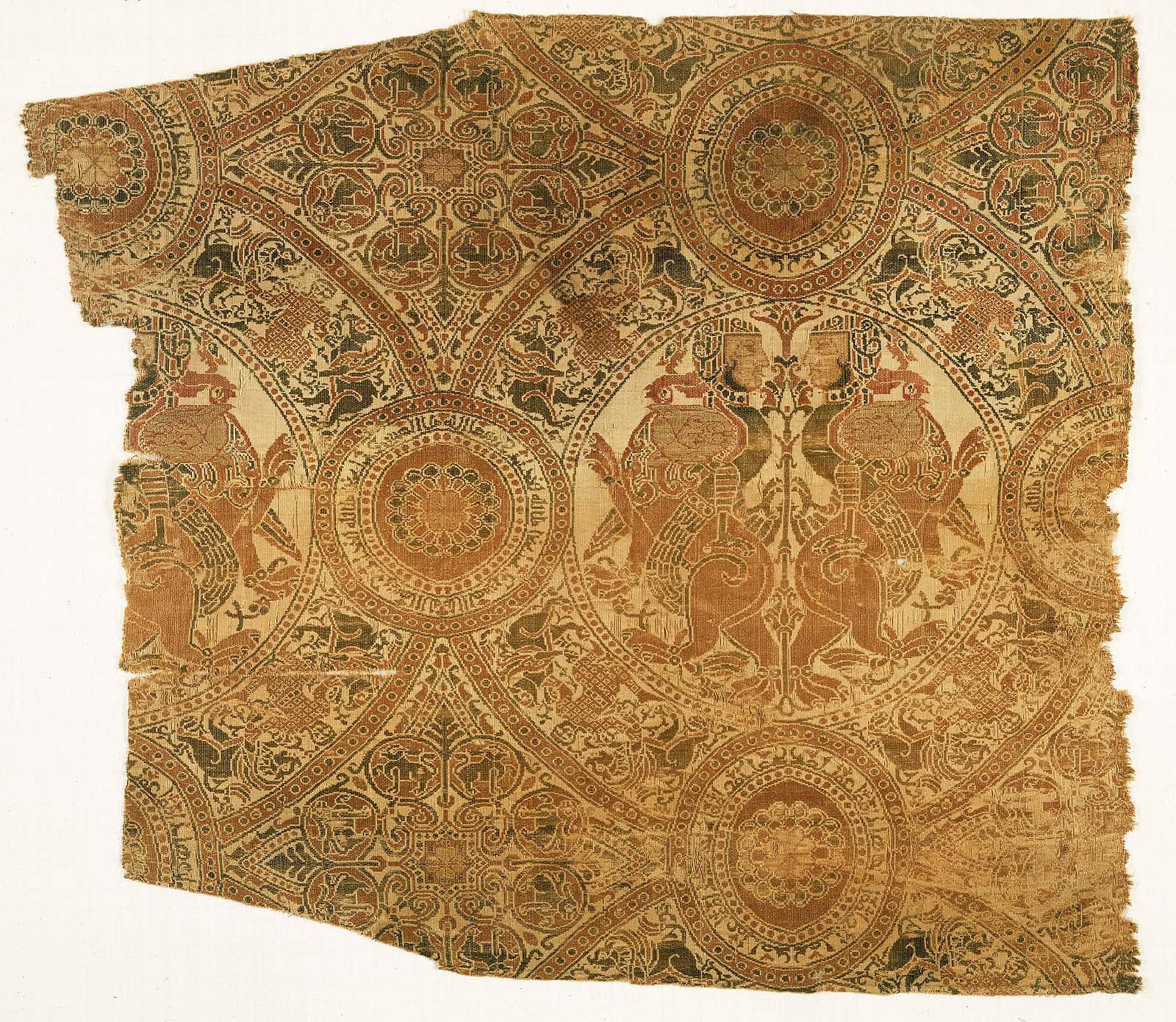 The interdisciplinary guest lecture Prestigious Clothing comprises the lectures "Power dressing in the desert: new evidence of Iron Age clothing from the Sahara" by David J. Mattingly (University of Leicester) and "Prestigious textiles from Baghdad in Iberia? On Textile Inscriptions, Patterns and Looms" by Corinne Mühlemann (Universität Bern).
The interdisciplinary guest lecture Prestigious Clothing comprises the lectures "Power dressing in the desert: new evidence of Iron Age clothing from the Sahara" by David J. Mattingly (University of Leicester) and "Prestigious textiles from Baghdad in Iberia? On Textile Inscriptions, Patterns and Looms" by Corinne Mühlemann (Universität Bern).
[ more ]
Academic Year 2022-23
Cities and their Hinterland, Jan. 18, 2022
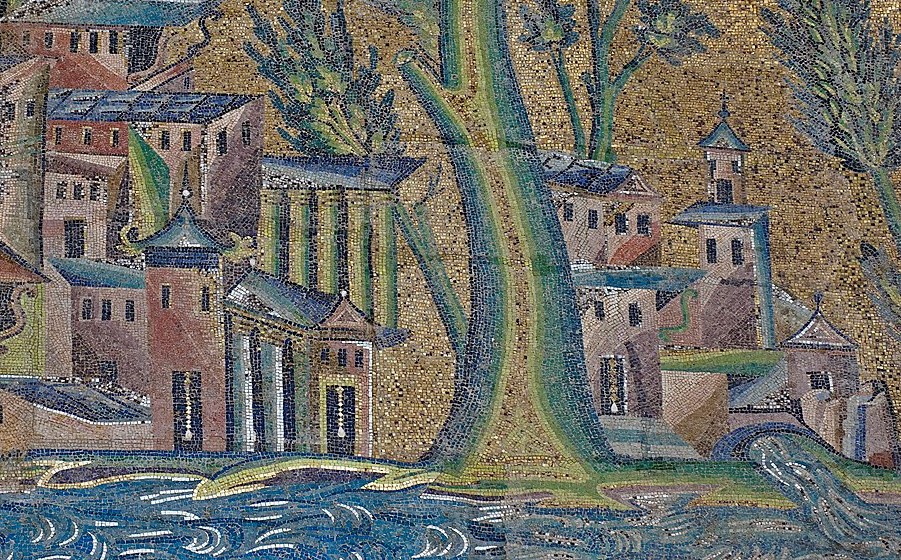 The interdisciplinary guest lecture Cities and their Hinterland comprises the lectures "Leptis Magna: city, territory, and long-distance contacts" by Katia Schörle (Centre Camille Jullian, Aix-Marseille Université) and "Conduits and Politics: The Water Supply of Damascus in the Umayyad Period" by Edmund Hayes (Radboud Universiteit).
The interdisciplinary guest lecture Cities and their Hinterland comprises the lectures "Leptis Magna: city, territory, and long-distance contacts" by Katia Schörle (Centre Camille Jullian, Aix-Marseille Université) and "Conduits and Politics: The Water Supply of Damascus in the Umayyad Period" by Edmund Hayes (Radboud Universiteit).
[ more ]
Cities and Societies, Dec. 14, 2022
The interdisciplinary guest lecture Cities and Societies comprises the lectures "Civic Identity, Religion, and Ethnicity in the Lives of the Fathers of Mérida" by Erica Buchberger (University of Texas Rio Grande Valley) and "Baghdad, an imperial capital and its government (with emphasis on the 11th-12th centuries)" by Vanessa Van Renterghem (Inalco - Institut des Langues et Civilisations Orientales).
[ more ]
Monumental structures, Nov. 16, 2022
The interdisciplinary guest lecture Monumental Structures comprises the lectures "The Tunisian High Steppes: 'Monumental Christian Testimonies'" by Fathi Bejaoui (Institut national du patrimoine de Tunis) and "Erecting Walls, Segregating Society in 10th Century Córdoba" by Felix Arnold (Deutsches Archäologisches Institut Madrid).
[ more ]
Frontier Cities, Oct. 19, 2022
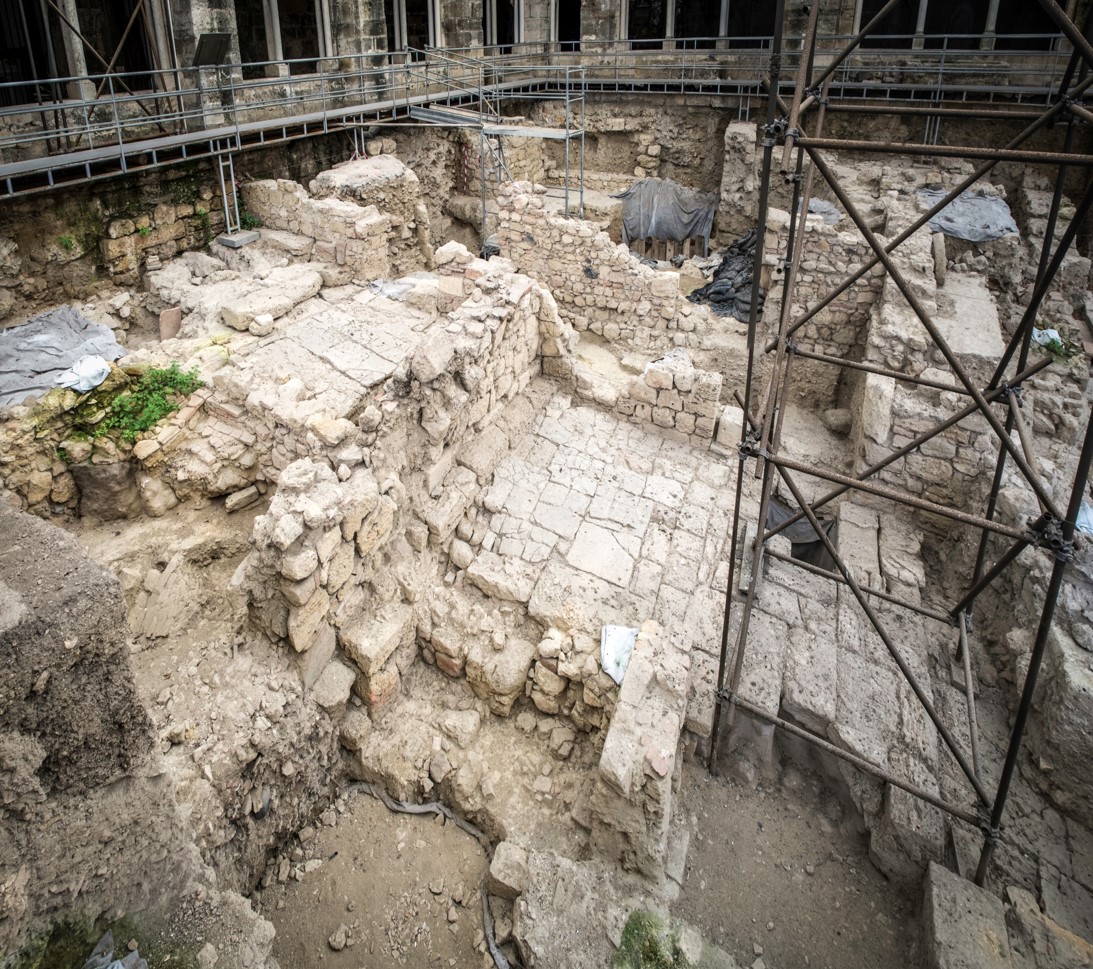 The interdisciplinary guest lecture Frontier Cities comprises the lectures "Felicitas Iulia Olisipo a three millennia town was in Roman times a town of many frontiers, but also a crossroads within the Roman Empire" by Carlos Fabião (Universidade de Lisboa) and "On the frontier and without a history(?): Sijilmasa under the Midrarids (8th-10th c.)" by Paul Love (Al Akhawayn University in Ifrane).
The interdisciplinary guest lecture Frontier Cities comprises the lectures "Felicitas Iulia Olisipo a three millennia town was in Roman times a town of many frontiers, but also a crossroads within the Roman Empire" by Carlos Fabião (Universidade de Lisboa) and "On the frontier and without a history(?): Sijilmasa under the Midrarids (8th-10th c.)" by Paul Love (Al Akhawayn University in Ifrane).
[ more ]
Cities in Competition, July 13, 2022
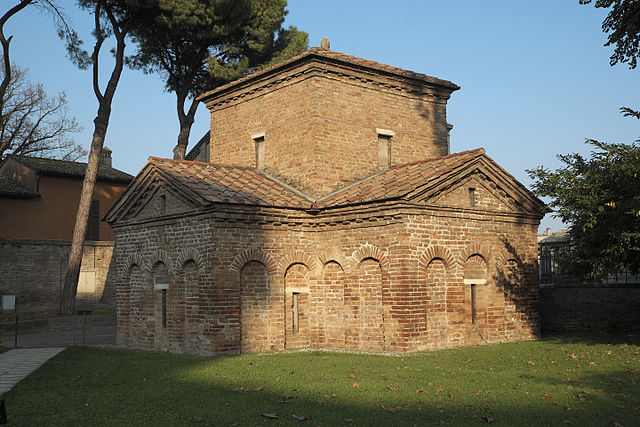 The interdisciplinary guest lecture Cities in Competition comprises the lectures "Late antique capitals in Italy: Rome and/versus Ravenna" by Neil Christie (University of Leicester) and "Tlemcen in the Early medieval Maghern: Reconsidering the Construction of Narratives on Competition between Cities" by Jennifer Vanz (Université Paris-Est Créteil).
The interdisciplinary guest lecture Cities in Competition comprises the lectures "Late antique capitals in Italy: Rome and/versus Ravenna" by Neil Christie (University of Leicester) and "Tlemcen in the Early medieval Maghern: Reconsidering the Construction of Narratives on Competition between Cities" by Jennifer Vanz (Université Paris-Est Créteil).
[ more ]
Endangered Harbour Towns, June 15, 2022
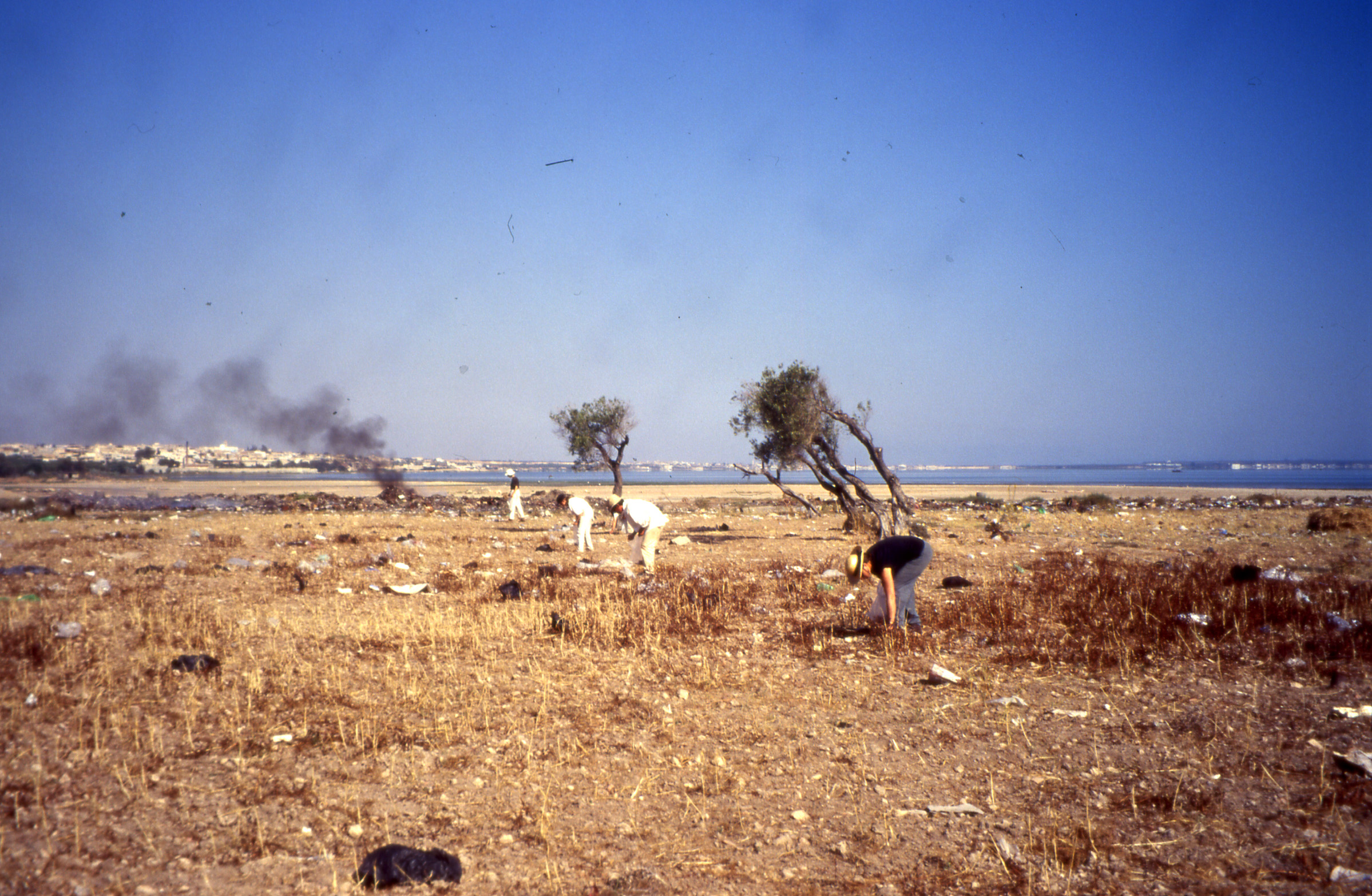 The interdisciplinary guest lecture Endangered Harbour Towns comprises the lectures "An Endangered Species? The Port City of Late Roman North Africa" by David L. Stone (University of Michigan) and "How Endangered were the Harbour Cities and Settlements of Early Islamic Ifrīqiya? A Reassessment of the Functions of the ribāṭs" by Antonia Bosanquet (Universität Hamburg).
The interdisciplinary guest lecture Endangered Harbour Towns comprises the lectures "An Endangered Species? The Port City of Late Roman North Africa" by David L. Stone (University of Michigan) and "How Endangered were the Harbour Cities and Settlements of Early Islamic Ifrīqiya? A Reassessment of the Functions of the ribāṭs" by Antonia Bosanquet (Universität Hamburg).
[ more ]
Conzeptualizing Public Spaces, May 11, 2022
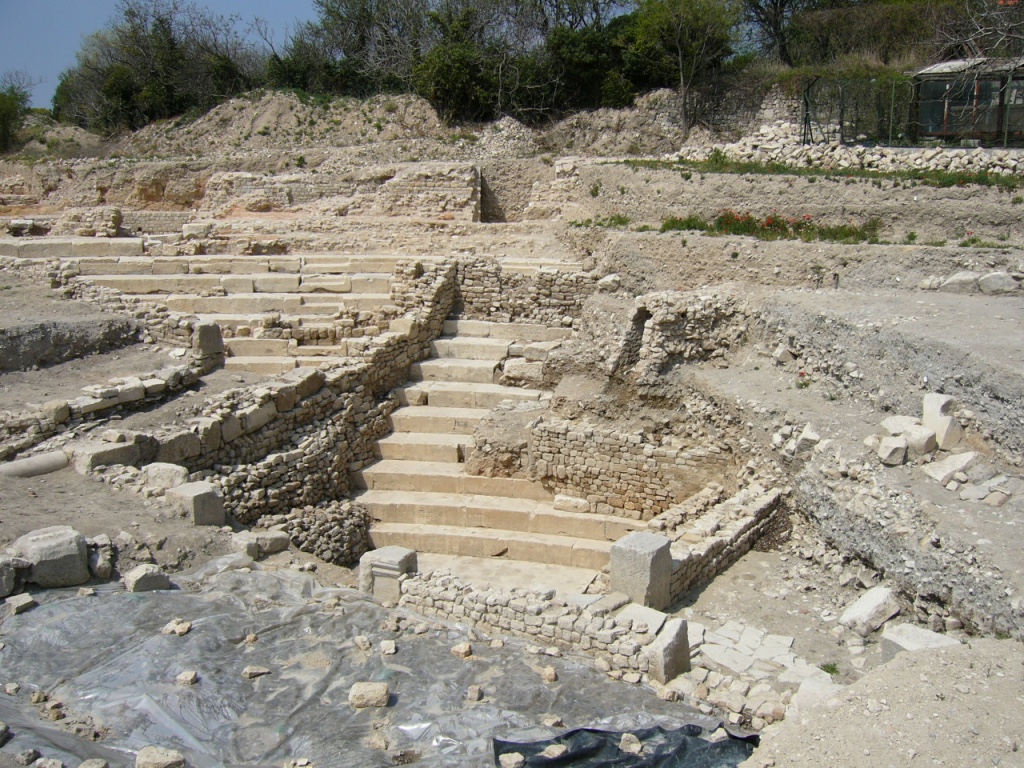 The interdisciplinary guest lecture Conzeptualizing Public Spaces comprises the lectures "Forum complexes and urban transformation in the cities of southern Gaul in late antiquity" by Simon Loseby (University of Sheffield) and "What room for the 'public space' in Islamic law?" by Christian Müller (CNRS Paris).
The interdisciplinary guest lecture Conzeptualizing Public Spaces comprises the lectures "Forum complexes and urban transformation in the cities of southern Gaul in late antiquity" by Simon Loseby (University of Sheffield) and "What room for the 'public space' in Islamic law?" by Christian Müller (CNRS Paris).
[ more ]
Urban Networks, April 20, 2022
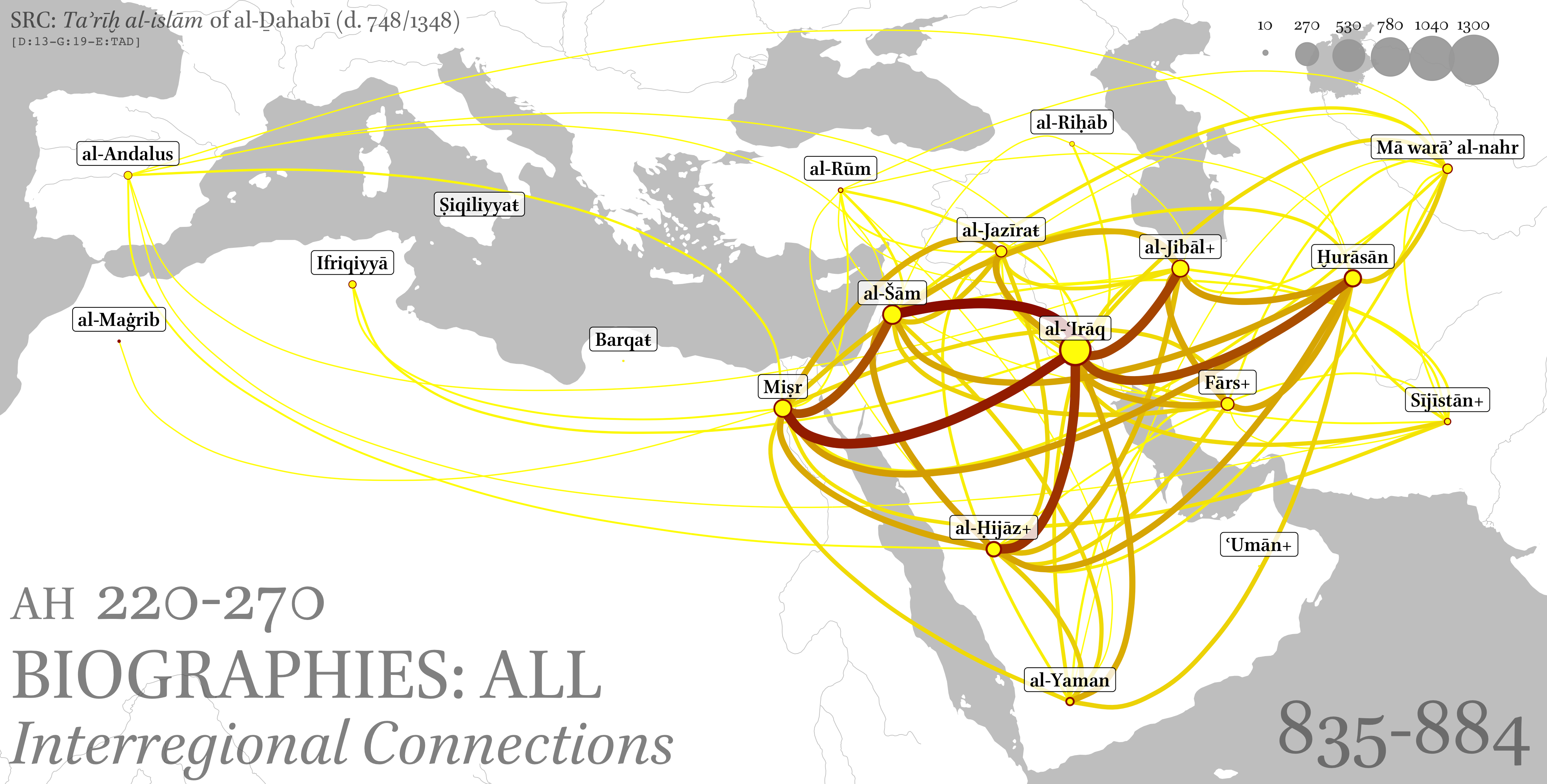 The interdisciplinary guest lecture Urban Networks comprises the lectures "Road Networks and Human Settlements in the Roman World. Some ideas" by Arnaldo Marcone (Università degli Studi Roma Tre) and "Tied by People: Modeling Islamic Urban Networks from Biographical Data (ca. 600-1300 CE)" by Maxim Romanov (Universität Hamburg).
The interdisciplinary guest lecture Urban Networks comprises the lectures "Road Networks and Human Settlements in the Roman World. Some ideas" by Arnaldo Marcone (Università degli Studi Roma Tre) and "Tied by People: Modeling Islamic Urban Networks from Biographical Data (ca. 600-1300 CE)" by Maxim Romanov (Universität Hamburg).
[ more ]
Academic Year 2021-22
Society and the Afterlife of a Believer, Jan. 19, 2022
The interdisciplinary guest lecture Society and the Afterlife of a Believer comprises the lectures "Close Encounters in the Afterlife" by Danuta Shanzer (Universität Wien) and "The study of Islamic cemeteries in al-Andalus from an archaeological perspective" by Carmen González Gutiérrez (Universidad de Córdoba), in collaboration with Fernando Valdés Fernández (Universidad Autónoma de Madrid).
[ more ]
Monasteries and Ribats as seat of religious devotion and power, Dec. 15, 2021
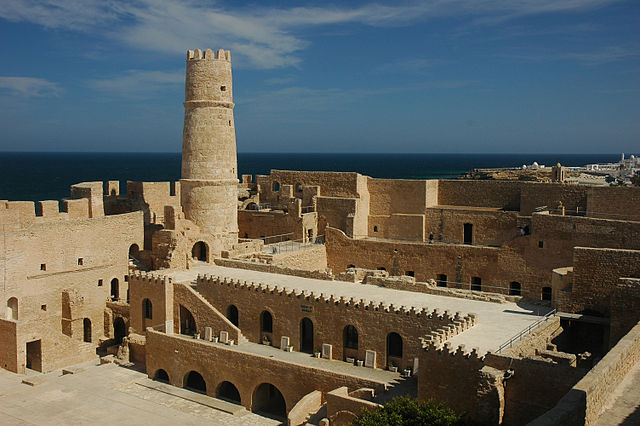 The interdisciplinary guest lecture Monasteries and Ribats as seat of religious devotion and power comprises the lectures "Monasteries in Late Antique Iberia. Places of power, places of resistance'" by Pablo C. Díaz (Universidad de Salamanca) and "The Early Islamic Ribāṭ: From Zāhid Border Warrior Fortress to Ṣufī Monastery" by Deborah Tor (University of Notre Dame).
The interdisciplinary guest lecture Monasteries and Ribats as seat of religious devotion and power comprises the lectures "Monasteries in Late Antique Iberia. Places of power, places of resistance'" by Pablo C. Díaz (Universidad de Salamanca) and "The Early Islamic Ribāṭ: From Zāhid Border Warrior Fortress to Ṣufī Monastery" by Deborah Tor (University of Notre Dame).
[ more ]
Religion and Ethnicity, Nov. 10, 2021
The interdisciplinary guest lecture Religion and Ethnicity comprises the lectures "Ethnicity and Christianity: the Iberian Peninsula in a comparative perspective" by Walter Pohl (Universität Wien) and "'The personal is apolitical?' Identity and Power in North Africa 800-1000 CE" by Peter Webb (Universiteit Leiden).
[ more ]
Religious Violence and Alterity, Oct. 20, 2021
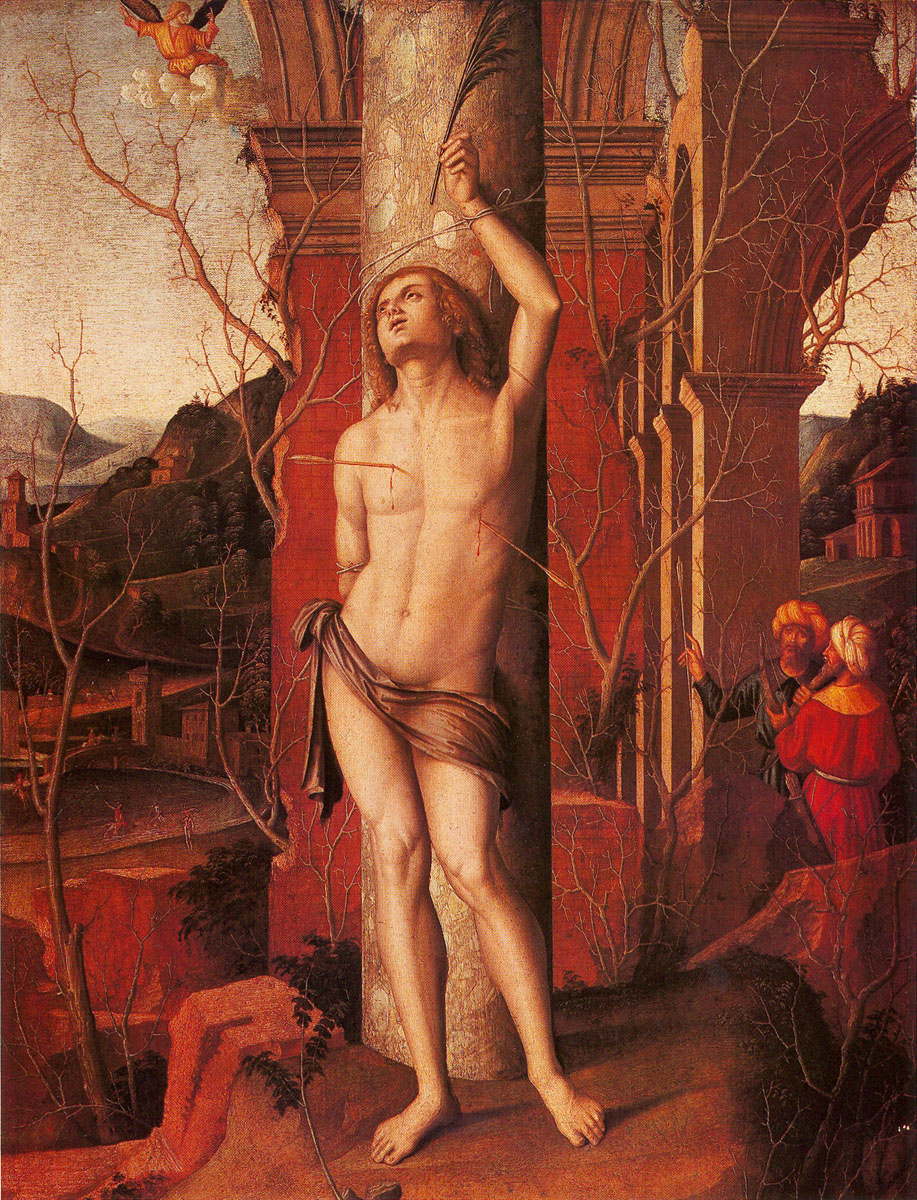 The interdisciplinary guest lecture Religious Violence and Alterity comprises the lectures "From Victim to Victor: Reading Spectacular Violence in Late Antique Christianity'" by Lucy Grig (University of Edinburgh) and "“Abase them (adhillūhum), but do not be unjust towards them (lā taẓlimūhum)”: the Subjection of North African Christians in the Context of Early Sectarian Imamates" by Omar Anchassi (University of Exeter)
The interdisciplinary guest lecture Religious Violence and Alterity comprises the lectures "From Victim to Victor: Reading Spectacular Violence in Late Antique Christianity'" by Lucy Grig (University of Edinburgh) and "“Abase them (adhillūhum), but do not be unjust towards them (lā taẓlimūhum)”: the Subjection of North African Christians in the Context of Early Sectarian Imamates" by Omar Anchassi (University of Exeter)
[ more ]
Gender and Social Control: The Role of the Women, July 7, 2021
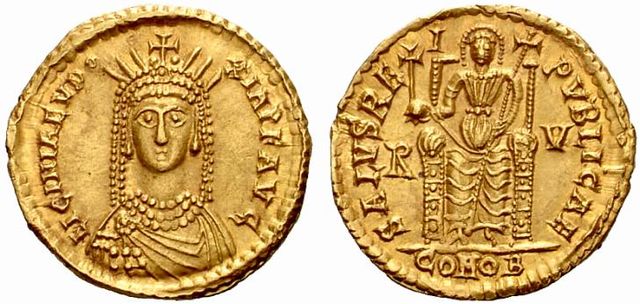 The interdisciplinary guest lecture Gender and Social Control: The Role of the Women comprises the lectures "Eudoxia the Jezebel: Women of Means in the Later Roman Empire'" by Susanna Elm (University of California Berkeley) and "Gender and Control in Early North African Maliki Law Islam" by Marion H. Katz (New York University).
The interdisciplinary guest lecture Gender and Social Control: The Role of the Women comprises the lectures "Eudoxia the Jezebel: Women of Means in the Later Roman Empire'" by Susanna Elm (University of California Berkeley) and "Gender and Control in Early North African Maliki Law Islam" by Marion H. Katz (New York University).
[ more ]
Sacred Spaces: Churches and Mosques within the society, June 16, 2021
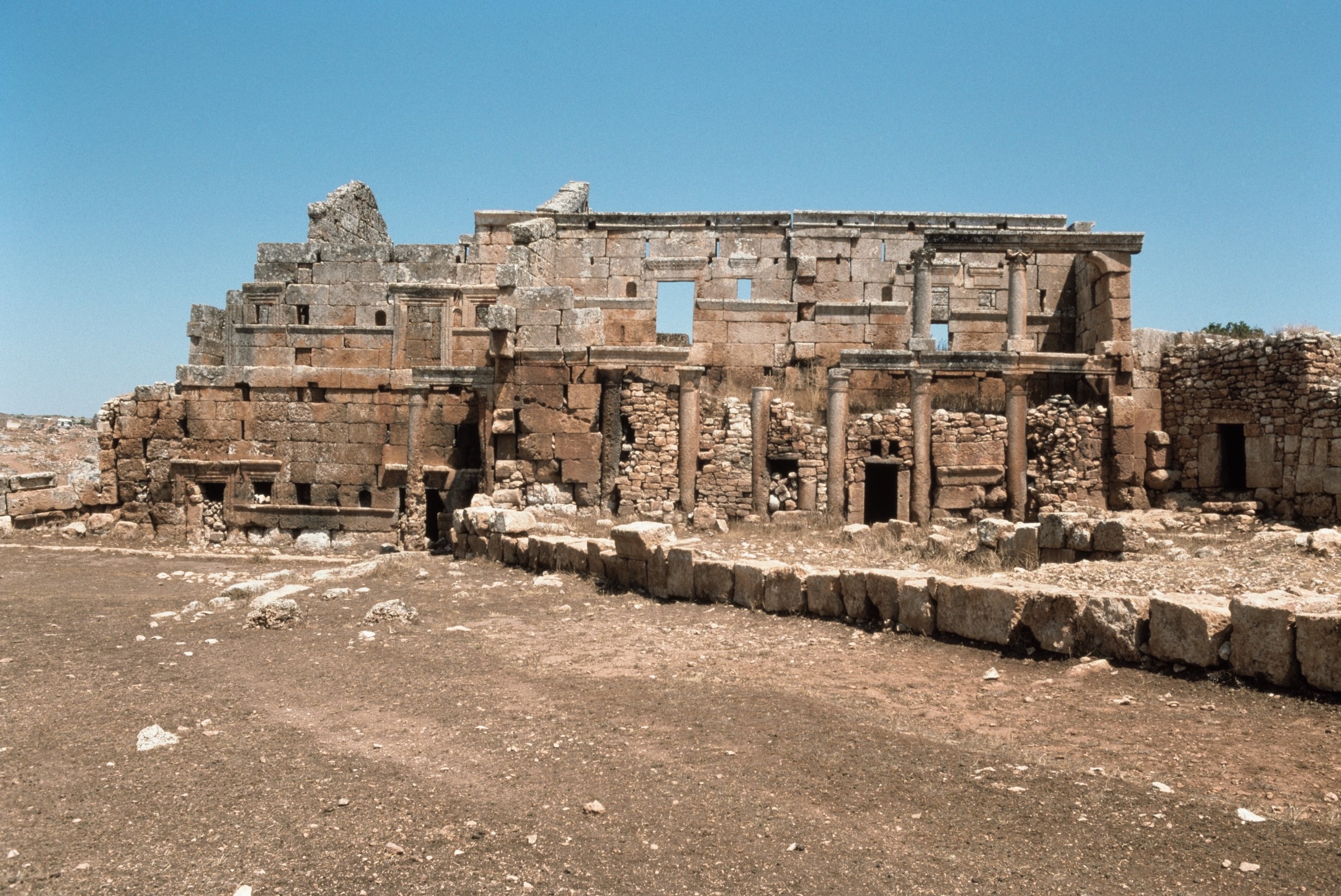 The interdisciplinary guest lecture Sacred Spaces: Churches and Mosques within the society comprises the lectures "Blocked Passageways: An Exploration of Somatic Time in 'Converted' Buildings" by Ann Marie Yasin (University of Southern California) and "The Past as Presence: Christians, Muslims, and the Generation of Sacred Topography in Medieval Syria" by Stephennie Mulder (The University of Texas at Austin).
The interdisciplinary guest lecture Sacred Spaces: Churches and Mosques within the society comprises the lectures "Blocked Passageways: An Exploration of Somatic Time in 'Converted' Buildings" by Ann Marie Yasin (University of Southern California) and "The Past as Presence: Christians, Muslims, and the Generation of Sacred Topography in Medieval Syria" by Stephennie Mulder (The University of Texas at Austin).
[ more ]
Religious Power and Religious Opposition, Mai 19, 2021
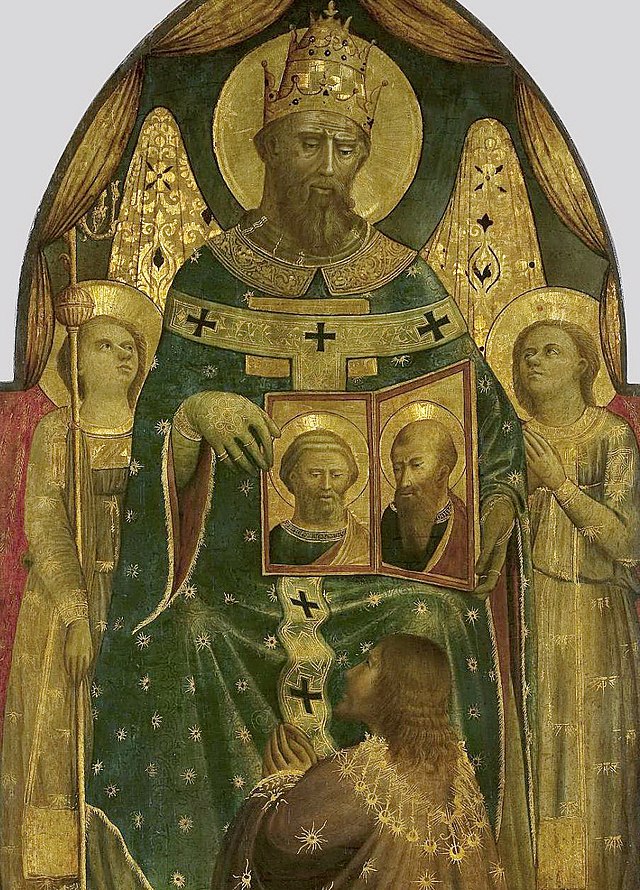 The interdisciplinary guest lecture Religious Power and Religious Opposition comprises the lectures "Constantine as 'Bishop of those outside'" by Mark Edwards (University of Oxford) and "The Ibāḍīs in North Africa (8th-10th century): an anti-Imperial movement?" by Cyrille Aillet (Université Lumière Lyon 2).
The interdisciplinary guest lecture Religious Power and Religious Opposition comprises the lectures "Constantine as 'Bishop of those outside'" by Mark Edwards (University of Oxford) and "The Ibāḍīs in North Africa (8th-10th century): an anti-Imperial movement?" by Cyrille Aillet (Université Lumière Lyon 2).
[ more ]
Conversion as Soul Searching and Add-on conversion, Apr. 14, 2021
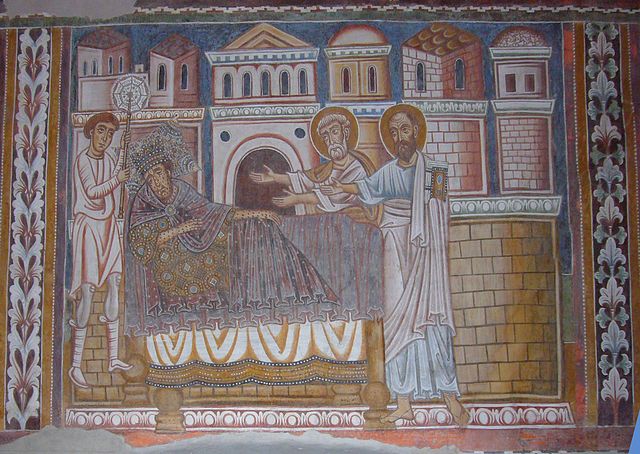 The interdisciplinary guest lecture Conversion as Soul Searching and Add-on conversion comprises the lectures "Constantine and conversion to Christianity" by Claire Sotinel (University of Paris-Est Créteil) and "Conversion to Islam in late antique and early medieval North Africa" by Christian C. Sahner (University of Oxford).
The interdisciplinary guest lecture Conversion as Soul Searching and Add-on conversion comprises the lectures "Constantine and conversion to Christianity" by Claire Sotinel (University of Paris-Est Créteil) and "Conversion to Islam in late antique and early medieval North Africa" by Christian C. Sahner (University of Oxford).
[ more ]
Academic Year 2020-21
Diplomacy in Political Fragmentation, Feb. 3, 2021
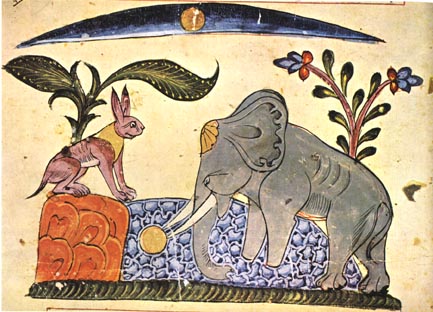 The interdisciplinary guest lecture Diplomacy in Political Fragmentation comprises the lectures "Parts of a Hole: Seeing Fragments or Constituents of the Post-Roman Imperial Bloc" by Andrew Gillet (professor emeritus) and "The Delegation of Diplomacy in the 'Abbasid Caliphate: The case of Abulabaz" by Paul M. Cobb (University of Pennsylvania).
The interdisciplinary guest lecture Diplomacy in Political Fragmentation comprises the lectures "Parts of a Hole: Seeing Fragments or Constituents of the Post-Roman Imperial Bloc" by Andrew Gillet (professor emeritus) and "The Delegation of Diplomacy in the 'Abbasid Caliphate: The case of Abulabaz" by Paul M. Cobb (University of Pennsylvania).
[ more ]
Formation of Legal Authority and Practices of Justice, Jan. 13, 2021
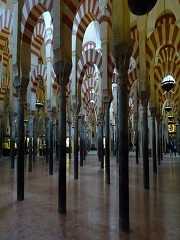 The interdisciplinary guest lecture Formation of Legal Authority and Practice of Justice comprises the lectures "Droit wisigothique au VII siècle" by Carlos Petit Calvo (University of Huelva) and "The early judges of al-Andalus: sources and representations" by Maribel Fierro Bello (CSIC).
The interdisciplinary guest lecture Formation of Legal Authority and Practice of Justice comprises the lectures "Droit wisigothique au VII siècle" by Carlos Petit Calvo (University of Huelva) and "The early judges of al-Andalus: sources and representations" by Maribel Fierro Bello (CSIC).
[ more ]
Factionalism in the Military, Dec. 2, 2020
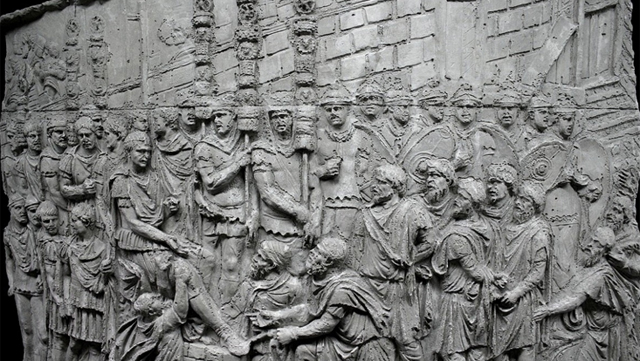 The interdisciplinary guest lecture Factionalism in the Miliary comprises the lectures “The Administration of an Imperial Expansion: Factions and Ethnicity in the Conquest of al-Andalus”" by Eduardo Manzano Moreno (CSIC) and "Military Identities and Society in Post-Roman Italy" by Laury Sarti (University of Freiburg).
The interdisciplinary guest lecture Factionalism in the Miliary comprises the lectures “The Administration of an Imperial Expansion: Factions and Ethnicity in the Conquest of al-Andalus”" by Eduardo Manzano Moreno (CSIC) and "Military Identities and Society in Post-Roman Italy" by Laury Sarti (University of Freiburg).
[ more ]
Land, Taxation and the Power of State, Nov. 4, 2020
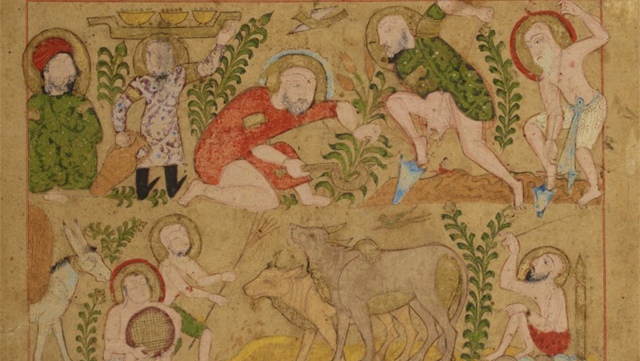 The interdisciplinary guest lecture Land, Taxation and the Power of State comprises the lectures “Why Roman Africa Differed: Land, Taxation, and the Power of the State" by Paolo Tedesco (University of Tübingen) and "Taxes and Tax Evasion in Early Islamic Egypt" by Jelle Bruning (Leiden University).
The interdisciplinary guest lecture Land, Taxation and the Power of State comprises the lectures “Why Roman Africa Differed: Land, Taxation, and the Power of the State" by Paolo Tedesco (University of Tübingen) and "Taxes and Tax Evasion in Early Islamic Egypt" by Jelle Bruning (Leiden University).
[ more ]
Boundaries and Authority II, July 15, 2020
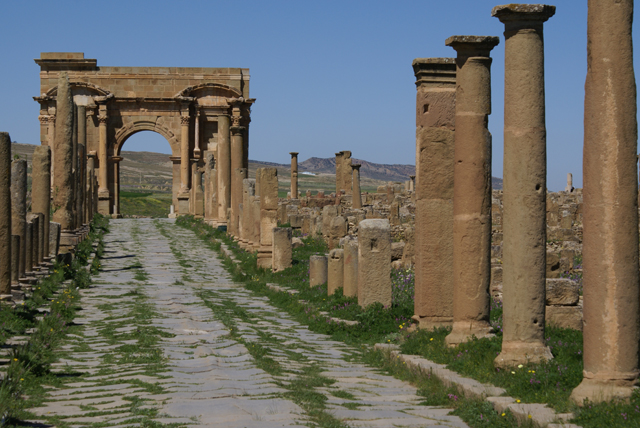 The interdisciplinary guest lecture Boundaries and Authority II comprises the lectures “Roman Borders in Africa during the High Empire" by Stéphanie Guédon (CRIHAM Université de Limoges) and "Sovereign Boundaries in al-Andalus in the Umayyad Era" by Janina M. Safran (Pennsylvania State University).
The interdisciplinary guest lecture Boundaries and Authority II comprises the lectures “Roman Borders in Africa during the High Empire" by Stéphanie Guédon (CRIHAM Université de Limoges) and "Sovereign Boundaries in al-Andalus in the Umayyad Era" by Janina M. Safran (Pennsylvania State University).
[ more ]
Boundaries and Authority I, June 17, 2020
The interdisc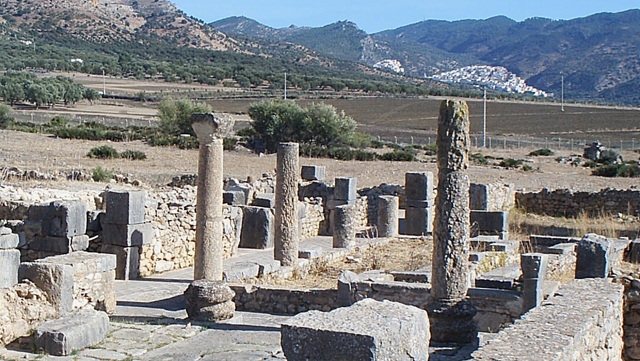 iplinary guest lecture Boundaries and Authority I comprises the lectures “In Search of Administrative and Ecclesiastical Boundaries: Late Antique Dioceses in Hispania” by Danielle Slootjes (Radboud Univeristy) and “Provinces, Tribes and Military Units in the Early Islamic Western Mediterranean” by Amira K. Bennison (University of Cambridge).
iplinary guest lecture Boundaries and Authority I comprises the lectures “In Search of Administrative and Ecclesiastical Boundaries: Late Antique Dioceses in Hispania” by Danielle Slootjes (Radboud Univeristy) and “Provinces, Tribes and Military Units in the Early Islamic Western Mediterranean” by Amira K. Bennison (University of Cambridge).
[ more ]

